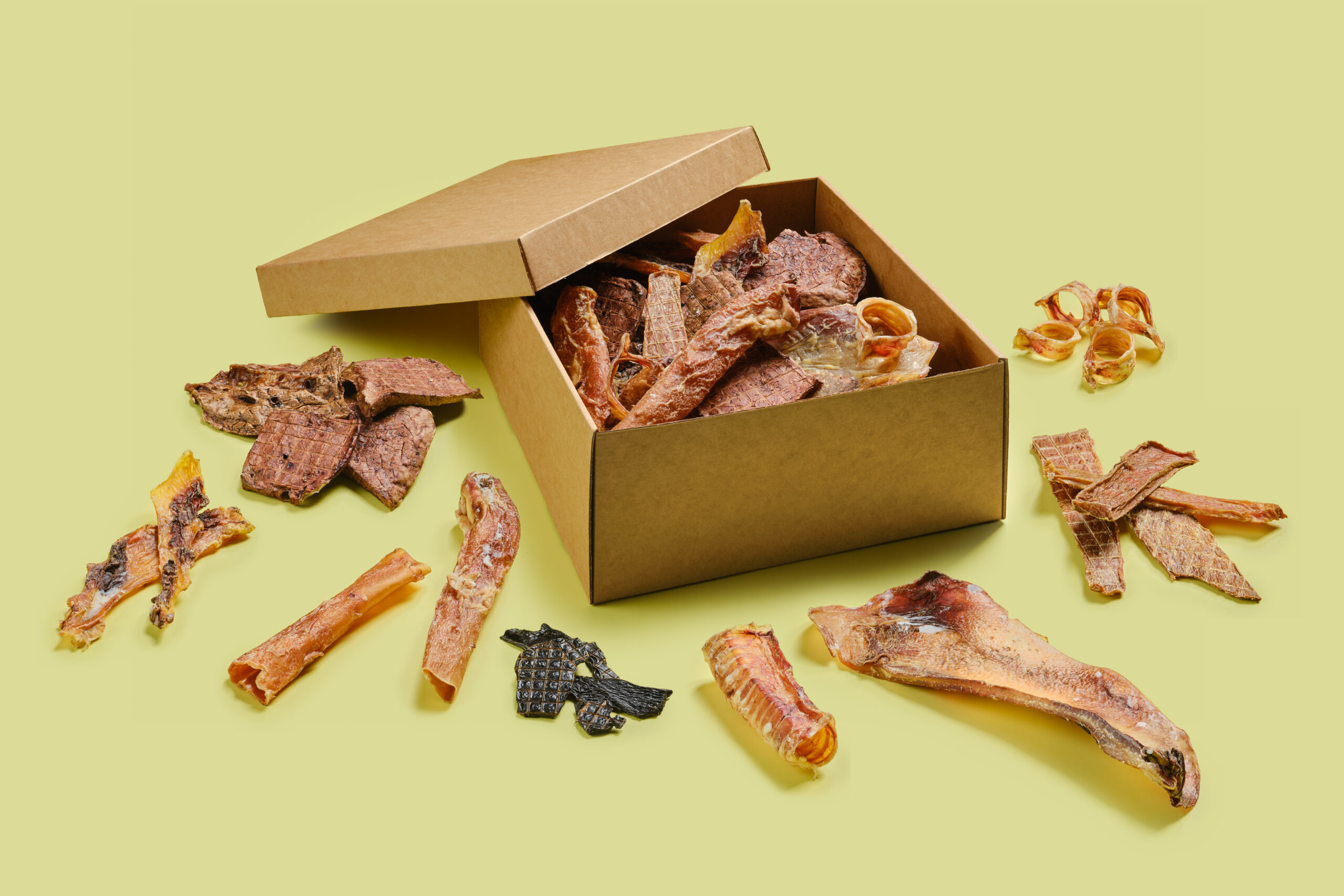
Food waste laws in 2025 are transforming how meat and seafood processors manage organic waste. With regulations in Ontario, New York City, and multiple U.S. states limiting landfill disposal of byproducts, processors are under pressure to find sustainable, profitable alternatives.
Upcycling byproducts such as beef skins, pizzle, cattle bones, organs, fish skins, and specialty parts into premium pet treats offers a win–win: meeting compliance requirements while creating new revenue streams.
Nyle Dehydrators designs energy-efficient, closed-loop dehydrators that stabilize these materials for long-term storage and sale, helping processors reduce waste, control odor, and produce high-quality, market-ready products.
The takeaway: Meat and seafood processors must divert byproducts from landfills, upcycling into pet treats is one of the most profitable solutions.
Pet treat manufacturers are sourcing collagen-rich beef skins and beef pizzle (used to make bully sticks) directly from meat processors. Using Nyle’s low-temperature, precision-controlled drying, these products retain texture, protein quality, and shelf life without chemical preservatives. For processors, this reduces waste hauling costs and keeps organic material out of landfills.
Animal Hides and Skins are rich in collagen and minerals, making them valuable for the pet chew and supplement markets. With careful dehydration, balancing time, temperature, and airflow, bones can be stabilized for sale as durable chews. Optimizing this method can turn a low-value byproduct into a higher-margin product while reducing disposal costs.
Liver, heart, and kidney from chicken, beef, and lamb are in high demand for their rich flavor and nutritional benefits. Precision drying preserves vitamins, minerals, and proteins while lowering moisture to safe storage levels. These organs can be sold whole as single-ingredient treats or ground into functional blends for pet food manufacturers.
Duck feet, chicken feet, rabbit ears, pig ears, and other specialty parts are increasingly popular as natural chews. With limited demand in human food markets, these items are ideal for upcycling. Low-temperature drying, improves shelf life, and produces a product appealing to both domestic and export pet treat markets.
Seafood processors are transforming fish skins and frames into nutrient-rich treats high in omega-3 fatty acids. Nyle Dehydrator’s closed-loop low temperature drying system allows air to recycle through the dehydrator, occasionally venting outside the building, which helps control and minimize odor while retaining oils and protein content. This produces a high-quality treat that meets the standards of premium pet food brands.
UpCycling meat and seafood waste into premium pet treats is a proven way to meet 2025 waste regulations and increase profitability.